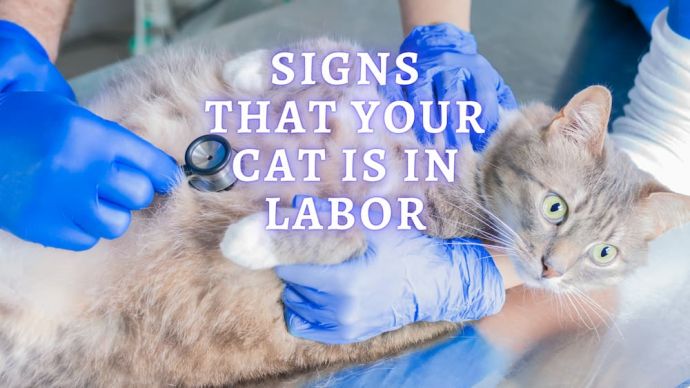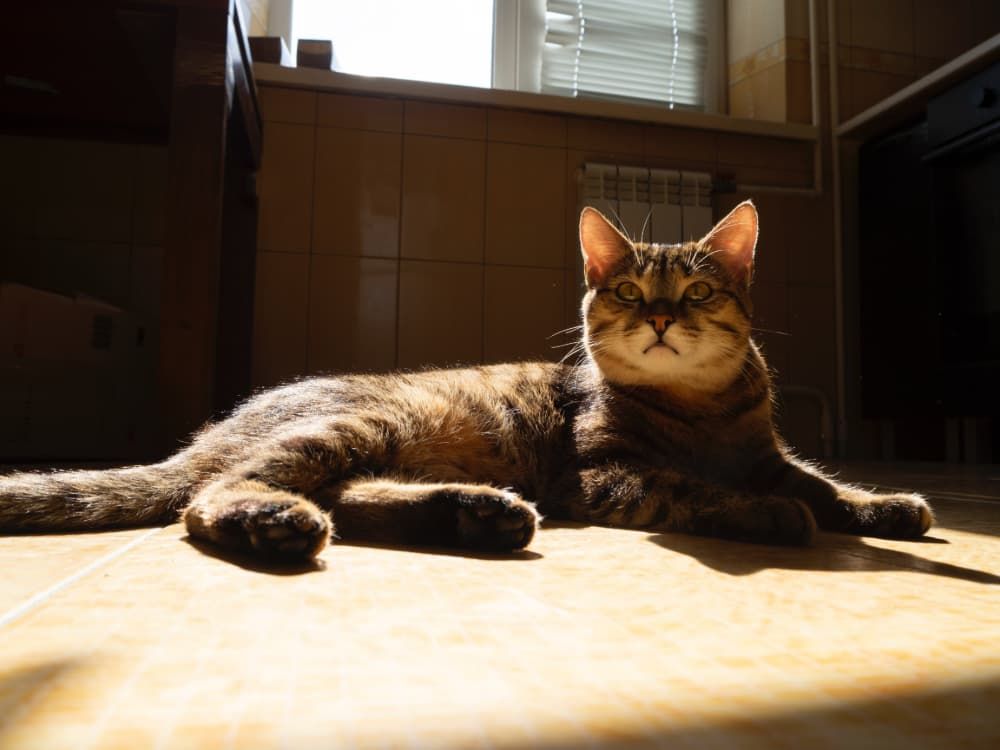Cat Deworming: What to expect after Deworming a Cat?
Written by:
Author: Vicki Smirnova
Vicki Smirnova is a professional writer and editor who adores animals and helps readers get along well with their pets. She has been working in digital media for more than 5 years and has great experience writing content about lifestyle, including pets. Vicki specializes in dog health and nutrition, cat feeding, dog training. She is an aquarium lover and is passionate to write about fish care at home. Also, Vicki headed several websites and worked as a news editor.
View all 245 articlesLearn about our editorial process and veterinary review board.
Reviewed by:
Veterinary review
by Dr. Sara Ochoa
Dr. Sara Redding Ochoa is a veterinarian with many years of experience and higher education. During her time in veterinary school she was able to learn form some of the most well-known veterinarians from all over the world. Sara lives happily with her husband Greg and her babies Ruby the schnoodle, and Bam-Bam her bunny. Dr. Sara Redding Ochoa has a passion and love for animals that makes her a wonderful asset to our team.
View all 13 articlesLearn about our veterinary review board
Viewed: 48293
Updated on: 01/24/2023
According to veterinarians, worms in cats are so common that any of our pets in their lives at least once suffered from this disease. Many types of worms in animals are dangerous for humans, especially children. Most pet owners are convinced that in the summer, their cats and dogs are most often infected with worms, and therefore it is enough to treat them with an anti-worm drug in the spring and autumn and forget about this event until the subsequent warming. In fact, this is not the case. Preventive measures of such drugs in the spring and autumn are essential, but they should be used in other situations.
Even if the cat does not leave the apartment, endoparasites may be present in its body. Helminth eggs enter the room on the owner’s shoes or clothing and various items that contact the soil. If the pet has free access to the street, one or more parasites are necessarily present in its body.
Timely deworming allows you to quickly free the cat’s body from parasites and prevent infection of other family members or pets. Veterinarians recommend regular medical and preventive measures.
How can a Cat get Worms?
Helminth infection occurs regardless of the temperature regime and season, although the frequency increases in summer. This should be taken into account when choosing a cat deworming scheme.
There are several ways how your cat can be infected with worms:
- getting parasite eggs into the house on the owner’s shoes;
- eating meat or fish that has not passed vet control and has not been subjected to heat treatment;
- eating contaminated food (for example, contaminated feed);
- accidental ingestion of a flea carrier of the larval form of helminth;
- eating an infected hunting object (rats and mice);
- infection of offspring from the mother.
READ MORE: What is the Best Shampoo for My Cat?
Infestation Symptoms in Cats
Regardless of what type of worms an infected pet has, the symptoms are similar. Helminthiasis is manifested by such changes in the state of animal health:
- loss of appetite;
- the dullness of the coat;
- dramatic reduction in total weight over a short period;
- unproductive, frequent cough;
- intestinal obstruction, constipation, or Vice versa;
- lethargy.
When the worm infestation is severe, in the feces, under the tail, on things, you can see helminths or their eggs, and sometimes the animal vomits. The type of worms can only be determined in the laboratory. Based on the test results, the veterinarian will select an anthelmintic that will help get rid of the infection quickly. After a course of anthelmintic therapy, you need to take sorbents. They are required to save the body of a sick cat from intoxication by dead nematodes.
READ MORE: Cat Toxoplasmosis
Each of the symptoms requires medical attention. Visit a veterinarian and perform treatment according to the prescribed scheme. You can choose the wrong type of medicine and give it in an insufficient dosage, leading to relapse, deterioration of the animal’s condition, and repeated therapy.
Helminths can be asymptomatic in the body of a dog or cat for a long time. And they are already at a late stage of infection when the animal begins to refuse to eat, lose weight, vomit, or have diarrhea. Animals are dewormed several times a year. The harm is minimal from medications taken for preventive purposes compared to serious worm infestations that can infect the pet and all family members, including small children.
The process of Cat’s Deworming
The process of deworming is necessary because many types of worm infestations are transmitted to humans. Especially if there is a small child at home, it is essential to do prevention regularly.
If your pet has already developed the disease symptoms, do not self-medicate and contact a veterinary clinic. Helminths can affect the liver, heart, lungs, and intestines, and with inadequate treatment, cause irreparable damage to the animal’s health. When given the drug, pay attention to the dosage. If you do not follow the doctor’s recommendations or precautions specified in the drug’s instructions, the animal may die or be poisoned.
To rid the cat of worms, you need to give it an anthelmintic drug. Veterinarians recommend the use of medications for the broad scope of the killing round and tapeworms.
Veterinary medicines for worms are produced in the form of tablets, but there are anthelmintic drugs in the form of drops that get rid of worms and ectoparasites. They are applied to the withers and distributed over the entire ridge.
The first deworming of kittens is carried out at the age of three weeks using drugs in a small dosage. There are special preparations for kittens. Then, every two weeks, the procedure is repeated until the first vaccination. Anthelmintic drugs mustn’t be used during the vaccination, and after it is completed, the pet is dewormed every three months. Each such event is recorded in the animal’s veterinary passport (drug name, date, and dosage).
Cats should be dewormed two weeks before the ligament, before vaccination, and 21 days after lambing. At this time, the offspring are also driven away by worms. You need to give drugs in the morning to be able to monitor the condition of the cat. If the pet has fleas, they also need to be treated to avoid relapse.
The criteria of the proper cat deworming:
- The choice of the drug according to the spectrum of action. The agents may be active against nematodes, cestodes (larvae and/or adult worms), and ectoparasites. Now, most of the drugs are universal.
- Correct selection of the dosage form of an anthelmintic drug. A calm animal can be rid of worms using tablets or suspensions. For aggressive cats, it is convenient to apply drops on the withers.
- Calculation of the drug dose based on the weight of the pet. Compliance with the plan of deworming, if necessary, the alternation of different drugs.
- Taking into account the individual characteristics of the pet. If a cat is hypersensitive to one of the drug’s active components, it is essential to contact a specialist for help and immediately select another drug.
- To minimize the risk of infection with parasites, you should regularly clean the tray with a complete replacement of the filler, rinse with boiling water and disinfect the tray itself, do not give the cat raw fish and meat if there is suspicion of their safety, and do not allow contact with stray animals.
After antiparasitic drugs, worms in cats and dogs come out with feces for the first few days. To completely stop the parasite’s development cycle, it is necessary to carry out treatment two times with an interval of 10 days.
READ MORE: When to feed kittens?
How to prevent Cat from getting Worms
Both domestic and street cats need regular deworming. Due to the body’s low weight and characteristics, a neglected helminth infestation in cats is not always cured, even with shocking doses of modern drugs. Do not wait for symptoms of an infection; planned prevention will provide your pet with reliable protection.
Preventive procedures are carried out every three months for animals that go outside or eat fresh fish, poultry, minced meat. Domestic cats that eat dry food are given medications twice a year.
Carrying out preventive deworming is much more useful than fighting existing parasites inside the animal. In addition to the presence of parasites in the animal’s body, there is a risk of various diseases against this background. The latter leads to a decrease in the immunity of a cat or dog. Secondly, it is natural that it is much easier to solve the issue of purchasing antihistamines financially than with an additional huge list of medications for the consequences of infection with worms.
You need to follow simple rules that will help prevent infection of your pet. Worms in cats will not appear if you follow the following measures:
- Avoid contact with infected animals.
- Regularly treat animals with special remedies for ectoparasites, even if your pet is not on the street and does not communicate with fellow animals.
- Feed with high-quality feed. Give the animal only fresh food and always put it in the refrigerator or throw away the remains of food that has been lain in the cat’s bowl for a long time. Completely exclude raw river fish from the diet.
- Keep your shoes in closed lockers, especially if you have a pregnant cat or small kittens at home.
- Medicines for the prevention of worms in cats are given two weeks before mating and vaccination.
- To monitor the cleanliness of the cat tray and cat bowls. To avoid infection, it is recommended to clean the cat’s toilet in disposable gloves and follow basic hygiene rules.
Unfortunately, it is not always possible to fully adhere to the rules described above, but you can reduce infection likelihood. Prevention of worms in cats can also consist of folk remedies, but their effectiveness is questionable.
Side effects of Worm medications
Different types of worms are affected by various drugs, respectively, for the treatment of helminthiasis of different types may require different drugs. Currently, you can buy both products based on a single active substance and broad-spectrum drugs.
Most often, anthelmintic drugs are based on praziquantel and pyrantel. The mechanism of their action is a violation of the permeability of cell membranes and changes in the energy processes of the parasite’s body, which leads to its paralysis and death. The drug, along with the destroyed helminths, is excreted with feces from the cat’s body. The mechanism of action of other drugs is similar. They act directly on the parasite, not on the cat itself (these substances are low-toxic for warm-blooded animals).
However, sometimes it also happens that a particular active substance does not cope with the destruction of all helminths that parasitize the cat’s body. There are either too many of them, or they have managed to adapt to the action of the drug used. Besides, the drugs only affect adult parasites, without destroying their larvae. If the animal is severely affected by worms or notices parasites in the feces, it is recommended to re-give the cat the medication. The interval between the administration of anthelmintic agents is 10 to 14 days. Many veterinarians also advise you to change the active substance every time you carry out helminthiasis prevention.
Anthelmintic drugs can control the same group’s parasites, for example, only tapeworms or only roundworms. However, the most common broad-spectrum medicines that help fight simultaneously with different types of worms, and sometimes even with the simplest organisms that can also affect the cat’s intestines and cause serious diseases. In veterinary pharmacies, you can find anthelmintic drugs of various firms and forms. If you do not have a special doctor’s appointment, then you can choose the tool that will be easiest for you to apply.
Some medications may have side effects; for example, cats often have a stool disorder or diarrhea when using sugar cubes. Drops on the withers are not recommended for use in the presence of unhealed wounds and skin damage.
Before you feed the cat an anthelmintic drug, you need to read the instructions. Anthelmintic drugs are usually given to the animal once in a strictly defined dose. It is not recommended exceeding the dosage, although many manufacturers promise that there will be no side effects. Still, it would be best if you didn’t experiment on your cat. Unfortunately, cases of poisoning with well-known remedies for worms are not uncommon.
The dosage of the drug is calculated based on the weight of the cat. Therefore, every time before using the medicine, the cat must be weighed — it could significantly improve or lose weight. Sometimes tablets need to be crushed, dissolved in water, and calculate the resulting suspension dosage. Besides, not all drugs can be combined with different medications or with each other when using single-component drugs. Not all anthelmintic drugs are suitable for pregnant and nursing cats and kittens under 3 months of age, which is better to buy a unique product marked “for kittens”.
There are several contraindications for deworming:
- The animal is weakened as a result of recent surgery or a serious illness.
- The cat has a severe infection that is not associated with the presence of endoparasites in its body.
- The animal is too exhausted.
- The pet is diagnosed with serious pathologies of the liver and urinary system. This is directly related to the elimination of active substances of Anthelmintics.
- Pregnancy and lactation. In this case, deworming is performed only after prior consultation with a veterinarian (a drug with minimal toxicity may be prescribed).
- Powerful infection with helminths. Deworming is mandatory but under the supervision of a doctor. In such cases, an individual treatment regimen for helminthiasis is prescribed.
FAQ
How long after deworming a cat are the worms gone?
Usually, after you give your cat a dewormer, the worms will be gone in 2 to 3 days. Sometimes it may take a second deworming a few weeks later for all the worms to be gone. Cats are known for keeping themselves clean. This means that they can reinfect themselves with parasites.
Your cat may lick their rectum when they have parasites eggs in that area. This causes them to reinfect themselves and possibly need another dewormer.
Do cats feel ill after deworming?
Most cats do not feel sick after they receive a dewormer. Usually, dewormers cause your cat to feel much better.
What are the side effects of worms in cats?
If your cat has worms, there are many signs that you may see. Common signs of parasites in cats are diarrhea, vomiting, bloated abdomen, and coughing.
Can I deworm my cat myself?
Yes, you can easily deworm your cat yourself. While you may need to get the medication from your vet as many of them, over-the-counter dewormers do not treat all parasites that your cat may have. You should be able to administer this to your cat efficiently. It will either be a liquid or a tablet that you will give to your cat by mouth. Some dewormers are even a topical application like many of the flea and tick medications for cats are. Also, it makes it even easier to give to your cat.
 Cat Care Why Does My Cat Attack My Legs? 10 Reasons Why and What To Do About It (Vet-Approved Advice)
Cat Care Why Does My Cat Attack My Legs? 10 Reasons Why and What To Do About It (Vet-Approved Advice) - 45566
- 21
 Cat Veterinary Tips Cat Stomach Gurgling: Vet Advice on Why is Your Cat Stomach Gurgling?
Cat Veterinary Tips Cat Stomach Gurgling: Vet Advice on Why is Your Cat Stomach Gurgling? - 35339
- 4
 Cat Veterinary Tips My Cat Lost its Voice: Can Cats get Laryngitis? (Vet Advice)
Cat Veterinary Tips My Cat Lost its Voice: Can Cats get Laryngitis? (Vet Advice) - 23247
- 13
 Cat Veterinary Tips Signs That Your Cat is in Labor: How to tell if a Cat is Pregnant?
Cat Veterinary Tips Signs That Your Cat is in Labor: How to tell if a Cat is Pregnant? - 14225
- 1

























